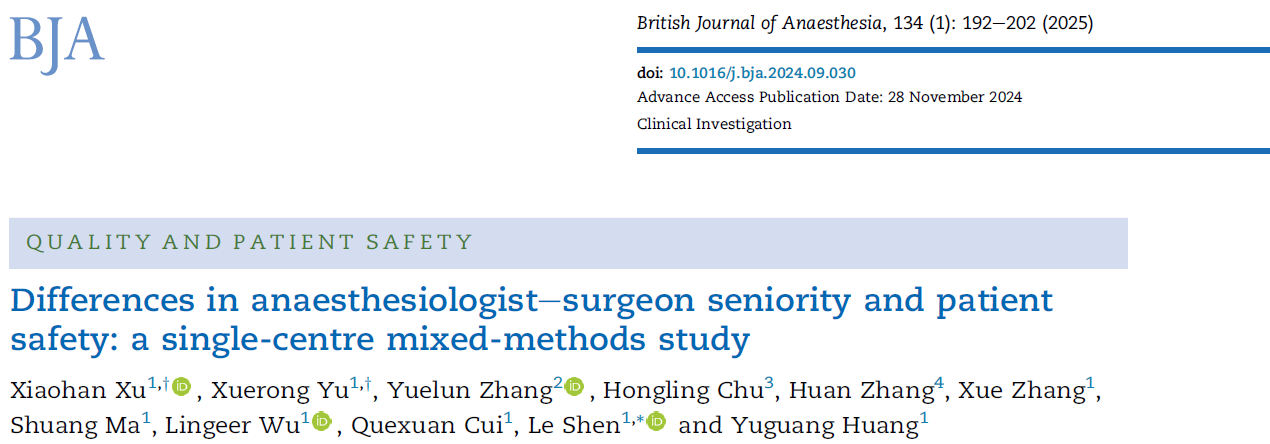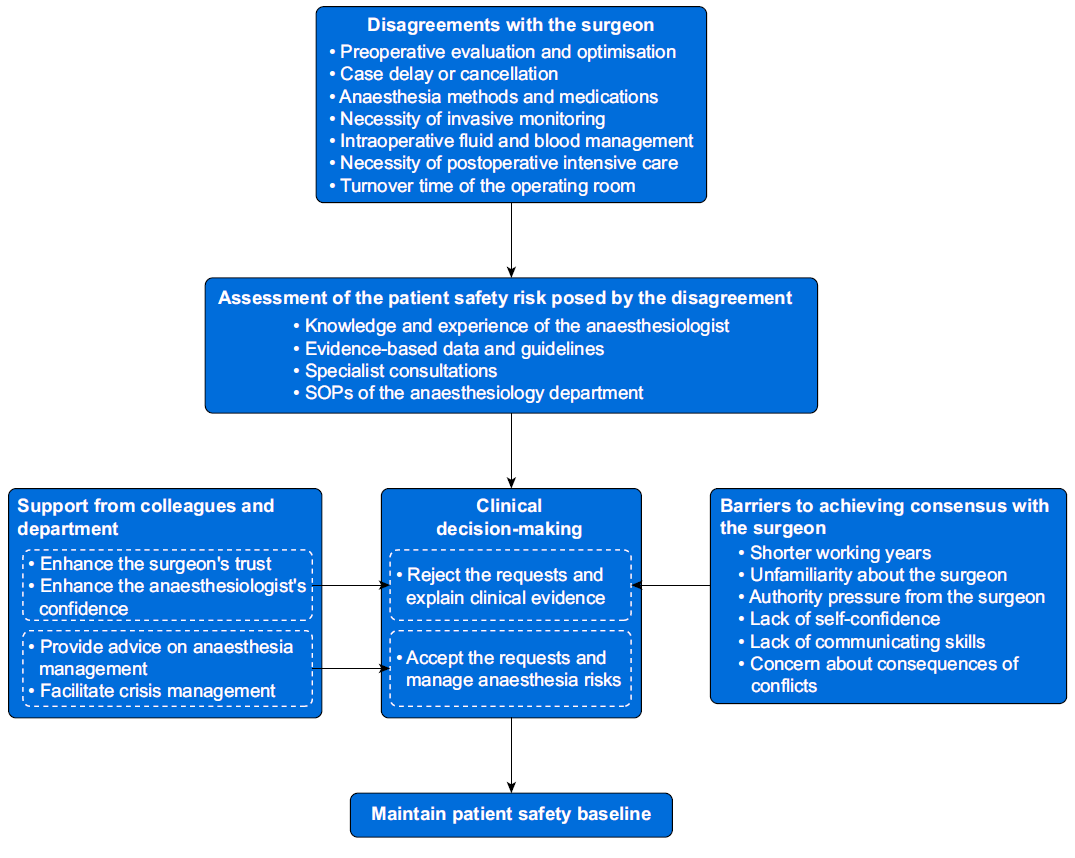How can junior anesthesiologists quickly master their role in the operating room? How should they handle pressure and collaborate seamlessly with surgeons to ensure surgical safety? Recently, the research team led by Dr. Shen Le, head of the Department of Anesthesiology at PUMCH, published their findings in the British Journal of Anaesthesia (IF: 9.1, a tier 1 journal ranked among the top 5% by the Chinese Academy of Sciences), reporting a decade of their clinical quality control experience. This research was supported by the National Natural Science Foundation of China and the National High Level Hospital Clinical Research Funding, among others.

Anesthesiologists, known as the "internists" of surgery, require not only solid professional skills and theoretical knowledge but also the ability to think calmly and make quick scientific decisions in emergencies. These capabilities invariably develop through long-term clinical practice, as every senior physician started as a junior one.
To investigate whether differences in seniority between anesthesiologists and surgeons affect perioperative safety, and whether senior surgeons influence junior anesthesiologists' medical decisions and quality of care, the research team at the Department of Anesthesiology, PUMCH conducted a mixed-methods study combining retrospective case-control analysis with semi-structured interviews.
Based on the department's adverse event database spanning over a decade, the team matched surgical cases with and without adverse events according to surgeon, surgery year, and surgery type. Analysis revealed that despite anesthesiologists having significantly less experience than lead surgeons, the seniority difference showed no significant correlation with the risk of anesthesia-related adverse events. This suggests that years of experience do not significantly impact anesthesiologists' ability to ensure patient safety.
Using theoretical sampling, the team recruited attending anesthesiologists with different working years from the department and conducted one-on-one interviews with them. The analysis showed that departmental measures - including standard procedures developed by the department, preoperative assessment outpatient clinics and consultations, discussions of difficult cases during morning handovers, and departmental support in crisis scenarios - helped boost junior anesthesiologists' confidence and ease their pressure when communicating with senior surgeons, helping ensure patient safety.
Based on the interview findings, the team recommends that when anesthesiologists and surgeons disagree on clinical decisions, the anesthesiologists can reassess risks by tapping into their professional knowledge and clinical experience, seek guidance from senior physicians and multidisciplinary teams, or refer to evidence-based data, guidelines, and departmental SOPs to find optimal solutions. These measures have significantly enhanced perioperative safety.

▲Recommended process for anesthesiologists to navigate disagreements with surgeons
After publication, Dr. Jennifer M. Weller, who is on the editorial board of British Journal of Anaesthesia, wrote an editorial highlighting the study's innovation and importance, while commending PUMCH's adverse event reporting system and complex case discussion protocols.
As the National Center for Anesthesia Quality Control, the Department of Anesthesiology at PUMCH has spearheaded numerous national surveys and multicenter studies. Through their pioneering work on perioperative safety and quality control, which has resulted in over ten SCI-indexed publications, the department has emerged as an international leader in innovative management practices. Building on this foundation, the team continues to integrate research methodology and evidence-based thinking into their clinical management, ensuring that research advances translate directly into enhanced patient care.
Written by Xu Xiaohan and Gan Dingzhu
